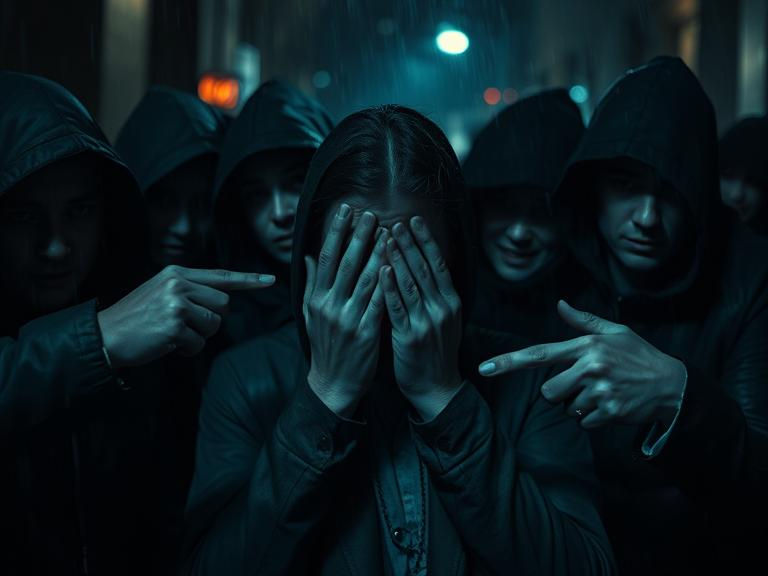Public Shaming in India: Need or A Bane?
- dhanwinderdsingh
- Mar 18, 2025
- 4 min read
Updated: Mar 20, 2025

Introduction
Public shaming or moral policing has been a contentious issue in India for decades. It involves the enforcement of certain moral codes by individuals, vigilante groups, or law enforcement authorities. These actions are often justified under the pretext of preserving cultural values, preventing obscenity, or maintaining social decorum. However, critics argue that moral policing infringes upon personal freedoms and fundamental rights, making it more of a societal bane than a necessity.
The Justification for Moral Policing
Proponents of moral policing argue that it is essential to uphold the moral fabric of society. Some of the reasons cited include:
Preserving Traditional Values: India has a rich cultural heritage, and moral policing is often seen as a means to safeguard traditional customs and ethics from the perceived threats of modernization and Western influence.
Preventing Public Indecency: Many incidents of moral policing stem from concerns over public behavior, such as couples displaying affection in public, which is considered inappropriate in conservative circles.
Regulating Social Conduct: Some believe that moral policing helps in curbing practices such as drug abuse, indecent dressing, and perceived immoral activities, thereby maintaining social order.
Protection of Women: Some claim that moral policing protects women from objectification and harassment by discouraging behavior that could lead to exploitation.
The Dark Side of Moral Policing
Despite its supposed benefits, moral policing has often led to severe human rights violations and societal distress. Here are some major criticisms:
Violation of Personal Freedom: India’s Constitution guarantees fundamental rights, including the right to freedom of expression and personal liberty. Moral policing often encroaches upon these rights, dictating how individuals should live their lives.
Use of Violence and Vigilantism: In many cases, self-proclaimed moral police resort to violence, intimidation, and public shaming. Reports of women being harassed for their clothing choices or couples being assaulted for being in public spaces are not uncommon.
Gender Bias and Patriarchy: Moral policing disproportionately targets women, reinforcing patriarchal norms. Women are often told how to dress and behave, while men engaging in similar actions face little scrutiny.
Legal Ambiguity and Misuse of Power: While there are laws against obscenity and public indecency, their vague definitions allow authorities and vigilante groups to misuse them, leading to arbitrary and biased enforcement.
Impact on Progressive Thought: Suppressing expressions of love, art, and individual choices in the name of morality hampers societal progress and prevents India from becoming a truly liberal and inclusive democracy.
Statistics on Moral Policing in India
Statistics provide a clearer picture of the prevalence of moral policing in India:
According to the National Crime Records Bureau (NCRB), cases related to moral policing and vigilante violence have seen a rise of 25% over the past five years.
A study by Human Rights Watch (2022) reported that 67% of women in urban areas have faced some form of harassment due to moral policing.
The Internet Freedom Foundation states that over 150 cases of internet censorship were recorded in India in 2021, many related to curbing 'immoral' content.
Reports suggest that incidents of public shaming and moral policing increase by 40% around Valentine's Day, as per a 2023 survey conducted by a social research firm.
Relevance in Daily Life
Despite the public or average person associating these incidents as isolated occurrences, it is more common than not in the life of an bachelor or college student. One of our sources have cited an incident, where they were busy doing a group project for their college curriculum in a rented flat, whereas a nosy neighbor decided to prod by shining lasers at their eyes and glasses to examine what beverage they were consuming. Many such uncles and aunts feel it necessary to "guide" the tenants they have absolutely no relations with in the interests of "sanskar" and "safety". While their intentions may be pure, this is in direct conflict with the personal rights of freedom every citizen of India is entitled to. Even from a non-legal perspective, such behavior makes life a living hell for people being straight up monitored day to day.
Prominent Cases of Moral Policing in India
Several incidents have sparked nationwide debates on the issue:
Mangalore Pub Attack (2009): A group of right-wing activists attacked young women at a pub, accusing them of violating Indian culture.
Kiss of Love Protest (2014): A protest movement emerged against moral policing after an incident in Kerala where a café was vandalized for allegedly promoting ‘immoral’ behavior.
Valentine’s Day Crackdowns: Every year, couples celebrating Valentine’s Day face harassment from certain groups who claim the day is against Indian culture.
The Way Forward
To address the problem of moral policing, a balanced approach is required:
Strict Legal Action: Authorities should take stringent action against those engaging in moral policing, particularly those resorting to violence.
Public Awareness: Educating citizens about their rights and the importance of personal liberty can help in countering moral policing.
Changing Societal Mindset: A cultural shift towards accepting diverse perspectives and respecting individual choices is necessary.
Media and Government Role: The media should highlight cases of moral policing to create public discourse, while the government must ensure that law enforcement agencies do not partake in such actions.
Moral policing in India is largely a bane rather than a necessity. In a country where some people have fish as prasad for Durga Pooja whereas some cultures don't allow even onions, one person's morals cannot be enforced on another. As a nation leading in the field of diversity, it is important that we avoid such moral policing in the favor of realizing individuality in society.
References
National Crime Records Bureau (NCRB) Report 2023
Human Rights Watch Study on Gender and Harassment (2022)
Internet Freedom Foundation, Censorship Report (2021)
Survey on Public Shaming and Moral Policing, Social Research Firm (2023)



Comments